A Modern Etiquette Expert’s Guide to Dining Out, Optimized in 4 Insider Tips
Be a Restaurant Rockstar
BY Heather Wiese-Alexander // 05.17.23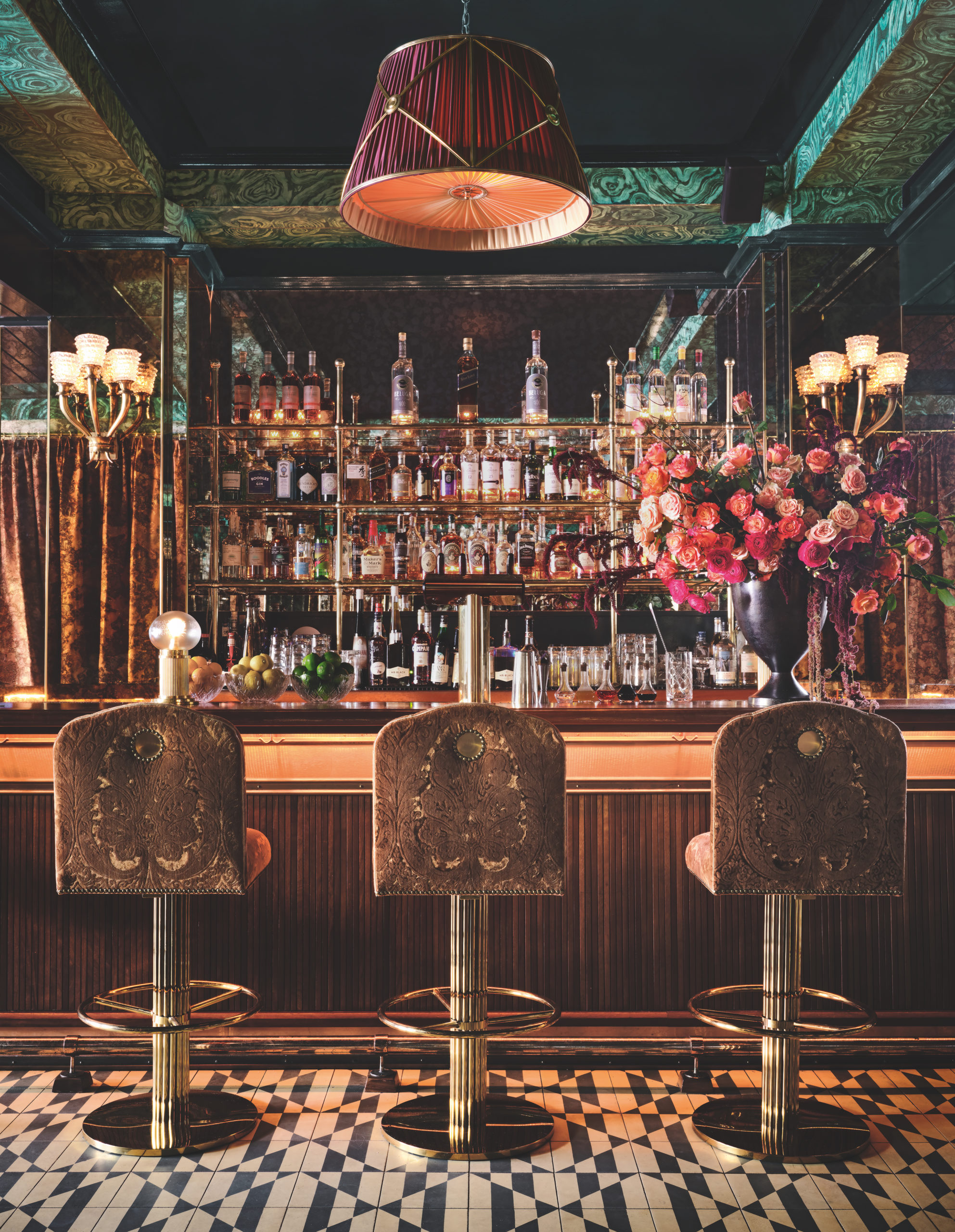
Ken Fulk's Carbone design. (Photo by Douglas Friedman)
In her recurring column, “Social in Security,” modern etiquette ambassador and Bell’INVITO founder Heather Wiese-Alexander walks us through a list of trusted tips you can rely on. Today’s topic: dining etiquette in 2023.
You’re savvy enough to know that a great dining experience is about more than food. What makes a night out worth the planning, the expense, and the valet parking? Pour (or order) yourself a glass of something and settle in for a scene-changing read. It’s all here: what I learned, some comforting validations, and what to add to your habits to ensure happy times.
Per usual, let’s talk about what still works and what you can safely toss, as far as dining etiquette is concerned.
This article assumes you’ve mastered the placement of your napkin in your lap (crease closest to you, open side facing out). Our focus is on the lesser-known morsels that make a difference in your dining experience. Let’s call it nuanced etiquette.

This was a fantastic article to write, by the way, except for the calorie intake required. Gym etiquette might be next month. In order of appearance a huge thanks to Janice Provost of Parigi, Tracy Rathbun of Shinsei, Lovers Seafood, and Dea, Jon Stevens of Stock and Barrel, Francesco Farris of Zio Cecio, Michael Nicols of the soon-to-open Via Triozzi; and Simon Roberts of Tango Room and the private wine club, Graileys. I’m incredibly grateful for their time and candor, but especially what they bring to the dining scene of Dallas. I’m linking you to their reservation pages below. We’ll talk about that, too.
1. Understand the unspoken.
You know that sophisticated shoppers know the difference between high price and high quality? Sophisticated diners are no different. They know how and where to have a dining experience and how to get the most out of it. My aim is to arm you with the knowledge that brings the relaxed confidence we all admire.
My interviewees are from the elite bunch of restaurants I’ll call “Indies” — my word for smaller, owner-run restaurants or small, locally conceived restaurant groups.
One thing all indie restaurants have in common is that they live to serve you the best possible food and experience. This difference is palpable. Want to pick the right place to meet new friends, bring clients, or impress a boss? Pick an indie. Sophisticated dining-out regulars know this code.
Now that we’ve crossed that bridge. Let’s get into the guest behaviors that make a difference.
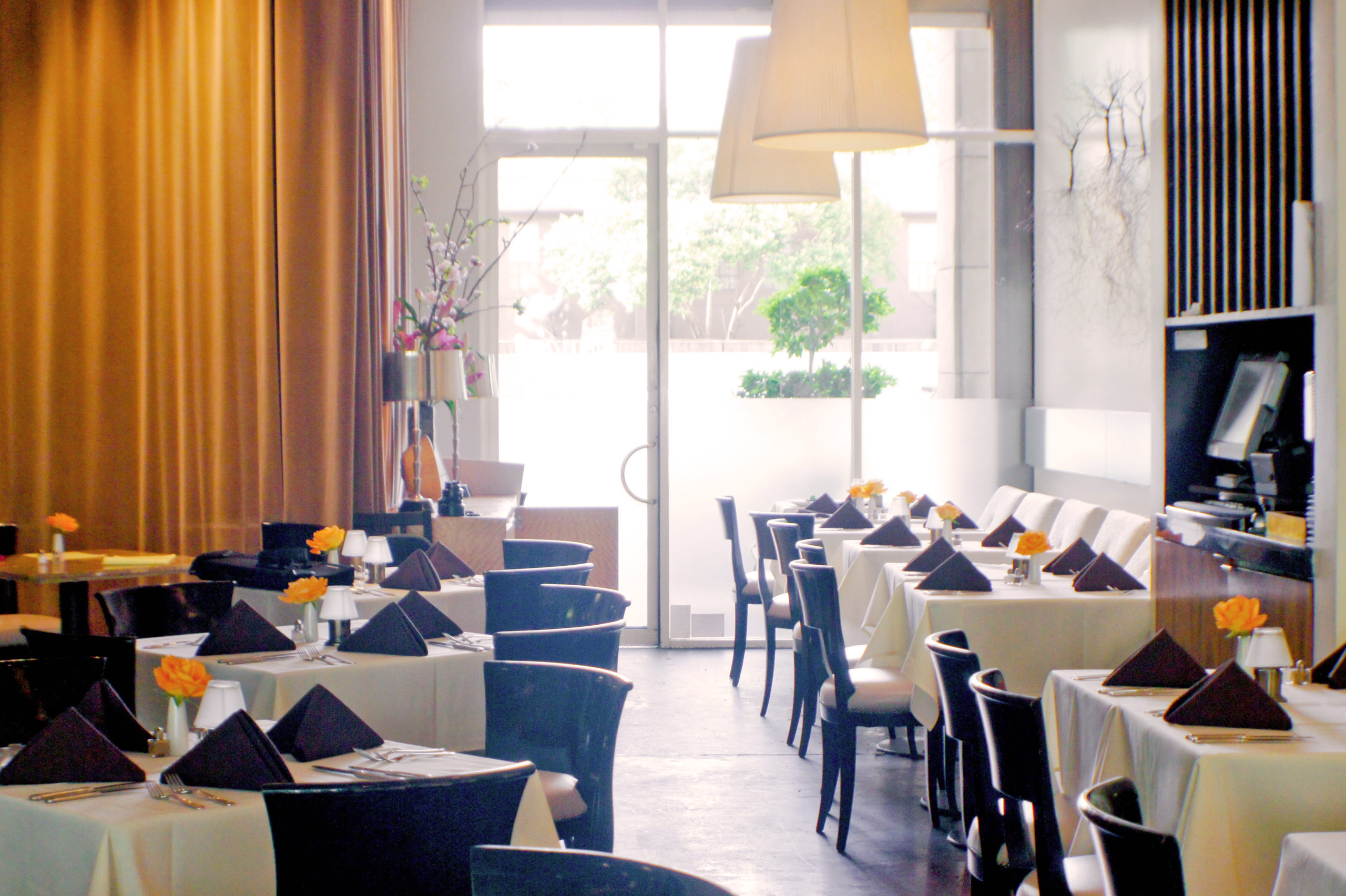
2. Be considerate. Consider these things.
Make a reservation.
More of a last-minute person? Me too. Regardless, be willing to wait patiently if you show up without one. See open tables? Don’t assume one can be yours. I start here because a solid one hundred percent of my interviewees made this point. Restaurants want to serve you and make you happy. Bargaining or getting upset over an open table that’s reserved for someone else puts everyone in a tough spot. Simply don’t. It’s not that they don’t want to seat you. I promise. They promise. Yet, still…ugh.
I asked Janice Provost from Parigi to help me understand a bit more. She confessed, she too can feel frustration when she’s the guest and sees an open table and is told it isn’t available. Her insider explanation, however, is helpful. Consider that someone has reserved the table. Keeping that commitment to them wouldn’t give you enough time to order and eat. Or in rare situations, there might not be enough staff to accommodate seating any further.
“Overwhelming the kitchen or waitstaff will have a negative ripple effect on all the other diners.,” she explained, “We are doing our absolute best to ensure that everyone’s dining experience is a great one.” With nearly 40 years of full tables in Parigi, she is a wealth of knowledge on mastering the art of the experience.
Don’t cancel last minute or no-show.
This causes real issues for the restaurants. While none on my panel of experts alluded to this next bit of intel, a few others that shall remain unnamed added this reason: your diner profile. Cancel often and you have earned a reputation. Whether this truth is motivating or not, the fact remains worth noting. We’ve become a society of terrible committers. Alas, friends, this is an etiquette pep-talk. Keep your reservations. Keep your commitments. Keep your word. This is the EQ standard by which we achieve greatness.
Tip like you know. Waitstaff is paid under minimum wage, so the tip is part of their living wage. A very small number of restaurants have moved out of this format, so by in large underpaying waitstaff and letting them earn from tipping is the norm. Do not short the tip. Problem with your experience? Did you let someone know to give them a chance to do something about it? Never send the message of your dissatisfaction in the form of a financial slight. It’s the wrong move.
(It should be noted, tipping now, especially in the environments we’re discussing is a 20% minimum in the U.S. Traveling abroad is a different story.)
Leave a great review. Wait—ready to leave a less-than-great review? Think twice. It’s the same sentiment as above. If you haven’t given the chance to the restaurant to make something right, your scathing I’ll-show-you fest online only makes you look lackluster in the social skills arena. No hiding behind your keyboard to become brave. Address an issue calmly and with the intent to let the restaurant resolve it to the best of its ability. Be humane—you have bad days, too. Always give management a chance to make it right before you offer anything negative. Have a marvelous time? Let people know! This is a fantastic way to support your local favorites.
3. Really see people. Here’s how.
Obviously, you see all these people in your way, crowding the bar, making your wait longer. But do you really? The restaurant is a happy place for everyone (not just you, I say with love and a wink). You’re among people now. Their experience is as important as yours.
Tracy Rathbun co-owner of Dallas favorites, Shinsei, Lovers Seafood, and most recently Dea, gives key advice. “Use eye contact. People tend to think yelling at the bartender is going to somehow help when actually, it’s eye contact that gets the job done,” Rathburn explains. “Do not yell or snap.”
Pause—”People really do this?” I asked. “Yes,” she laments, “and it seems more prevalent since the pandemic.”
Another great tip from her is, “Mind your space. Is there a couple looking for two chairs at the bar and you have one on either side of you? Move down.”
A sophisticated diner understands that a kind gesture extends a boost of goodness. My restaurant-owning friends here also noted throughout our conversations that nothing makes them and their staff happier than seeing strangers connect and cooperate. Want that rock star attention? Bring this consideration regularly. Restaurants take care of their own. Provided you’re a regular delight rather than a regular eye-roll.
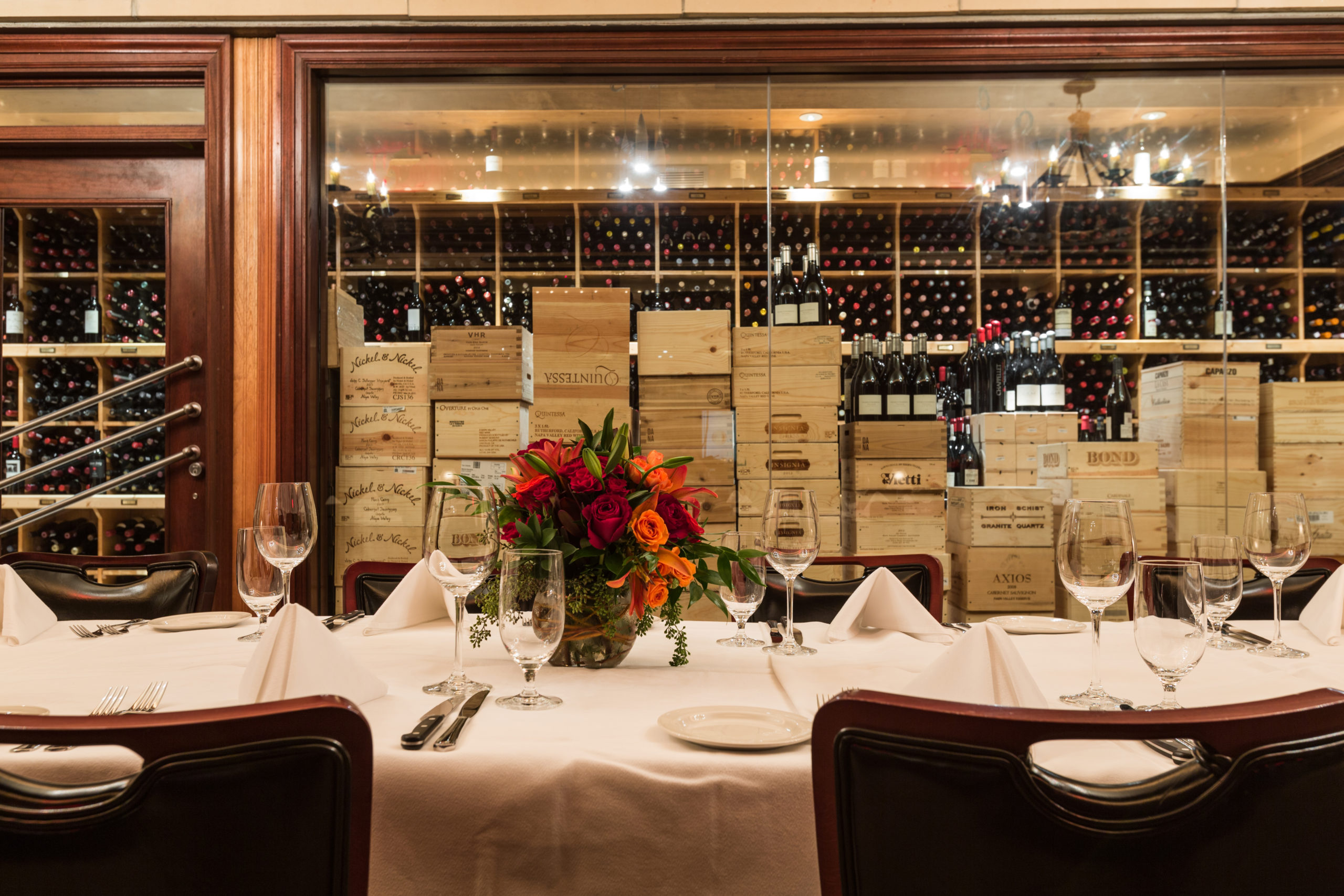
4. Come to learn.
Come with a curious mind.
Interestingly, the consensus is that even the most well-traveled diners stay curious. Simon from Tango Room and Graileys, both in the Design District, put it best, “We love curious diners, so chatting about wine and food is what keeps us inspired.”
Learn the culture.
Nothing says benvenuto like a meal in Francesco Farris’ Lover’s Lane restaurant, Zio Cecio. Francesco’s home away from Dallas is on the island of Sardinia off the coast of Italy. When my Italian friends come for a visit, his is the only Italian food they will eat in a restaurant outside of Italy. Authentic and fresh are just the beginning.
Francesco is generous with his knowledge. I’ve been going for years and learned just last week to eat mussels in a whole new way (go ask—I’ll leave this one for him). Regarding toasts, I love his etiquette advice. It’s more elegant to refrain from the clink, however, no one faults you if you like to do it. He says, “You must look in the eyes. You must take a sip,” he reemphasized. “And, don’t set the glass down without drinking” to honor the toast. Simply raise the glass and offer “Salute” in his native Italian (pronounced sah-loot-ay).
Learn a new flavor profile.
It’s perfectly acceptable to crave a night of comfort food, however, if we’re talking about building etiquette muscle, it’s time to try something new. Before you decide to rework a menu offering, try something the way it’s prepared. If you must make specific requests, be polite and reasonable. I cornered Jon Stevens about this one. He has a prestigious pedigree with the Ritz Carlton and Jardinière in San Francisco, and Aurora in Dallas before opening his own local favorite, Stock and Barrel, located in Bishop Arts.
I asked if he draws the line on accommodating extensive menu variations. “If it’s at all possible we absolutely will make the change for a guest,” Stevens shares. His advice was to let the waiter know the primary concern, this way if the kitchen can’t accommodate the specific request, there is enough information for them to present another possible solution. Sure, they want you to try their creativity, but he says “Bottom line, we want each person happy. We’ll do everything we can to make that happen.”
Learn some terminology.
Learning why the chef makes certain choices, the story behind the concept, the local vendors the restaurant uses… these are gateways to a wealth of more knowledge in general. Additionally, learn the latest terminology to make for a better experience. If you really want to dig in, PureWow has a list you can sink your teeth into.
Michael Nicol, manager at soon-to-open Via Triozzi on lower Greenville, is a great mind to try this out on. His background with famed chef Michael McCarty was apparent in all his insights and advice. He makes the point that the food industry is always changing, constantly evolving, stating “Even the most experienced of us are still actively learning. It’s always encouraged to ask questions.” I love what he said next, “Create a relationship with the person that is taking care of you, and you’ll have a much better dining experience.”
Sending wine back.
I seized the opportunity to ask Michael a question I’ve always felt a little insecure about pertaining to wine. “Let’s say I order a nice bottle, taste it, decide to wait a bit” (many times wine tastes better after it had a little time to breathe) “and really am disappointed by how it tastes. Am I stuck with a whole disappointing bottle?”
“No—not at all!” He said. “If you don’t like the wine, send it back.” I again voiced my insecurity, “I feel bad, especially when the bottle is expensive by my standards.” He reassured me, “No kitchen will look down on you for doing this.” I learned something else from my panel of experts, who all agreed with Michael’s advice. The restaurant can send a bad bottle back to the distributor. They aren’t out the expense of that bottle unless they choose to keep it.
We’re back to this point: these restaurants want you to have a great experience.
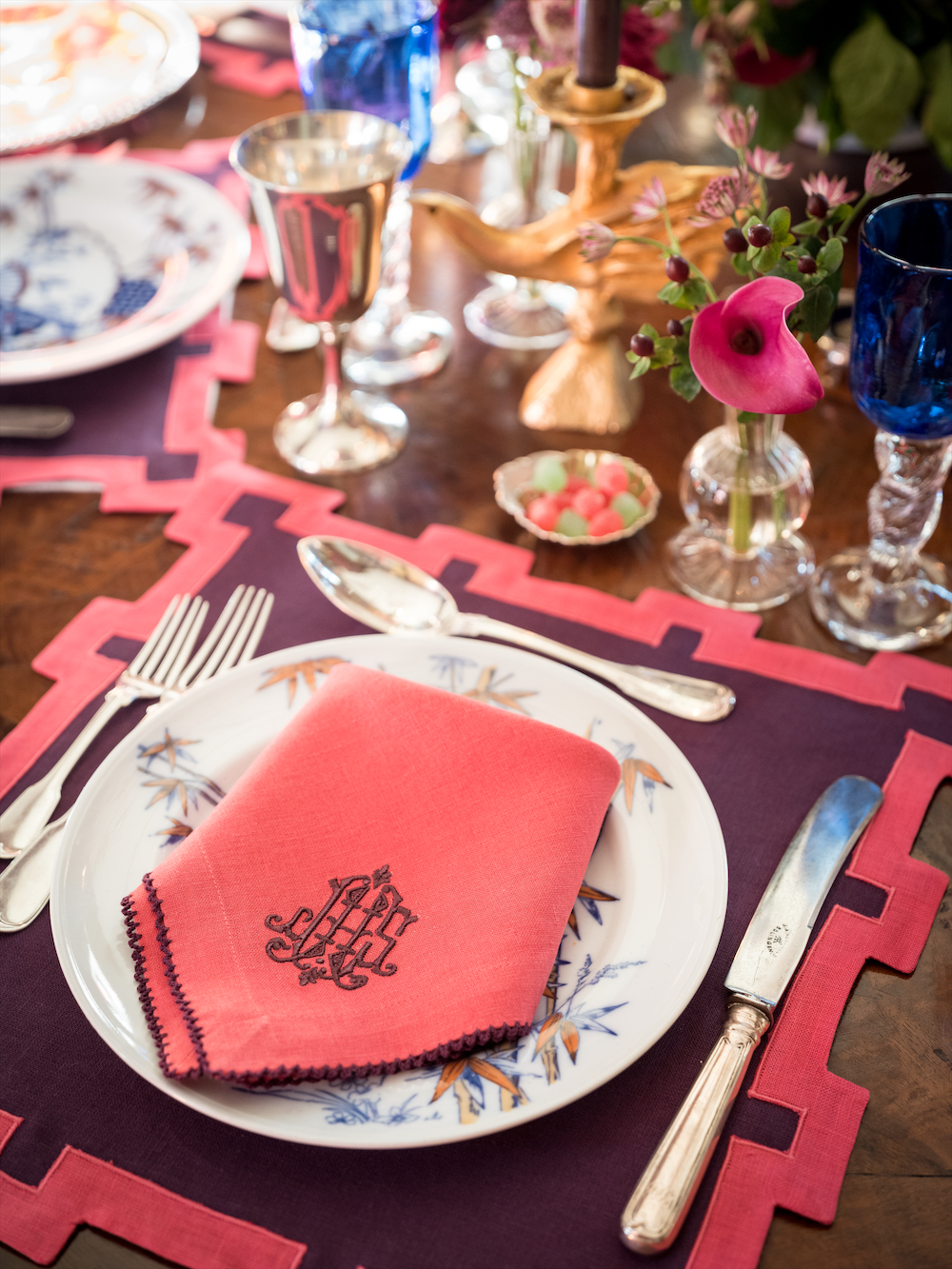
A Few More Dining Etiquette Do’s and Don’ts:
Assuming you already know a few things about basic manners, let’s dig into some meatier bites of dining etiquette:
– Hold your knife and fork properly and rest them on the plate rather than the table.
– Place utensils on your plate when you’re finished with a course. They are taken away with the plate.
– Yes, at a casual dining scene, feel free to text and read on your phone. Mute sounds. If the lights are dim in the restaurant, dim your screen as well. The point is not to be a distraction to other guests. At a higher-end fine dining situation, put your phone away completely. Some upscale restaurants and private clubs even have this posted.
– Never rest elbows on the table, right? Wrong, actually. It’s ok to lean into a conversation which might naturally mean your elbows or forearms are on the edge of the table.
– Don’t blow on food. Soup too hot? Stir to release heat.
– Pass. Don’t reach. Pass to the right (clockwise).
– Put your napkin to the left of your plate when you get up from the table for any reason. Some have said to put it in your chair. That’s acceptable, I’m not going to get in the middle of the Great Napkin Debate among etiquette experts. I’m a fan of the left for reasons you can ask me in person; but pick one of those two.
– When choosing your seats, and you aim to A+ the etiquette test, sit alternating gender and not next to your significant other.
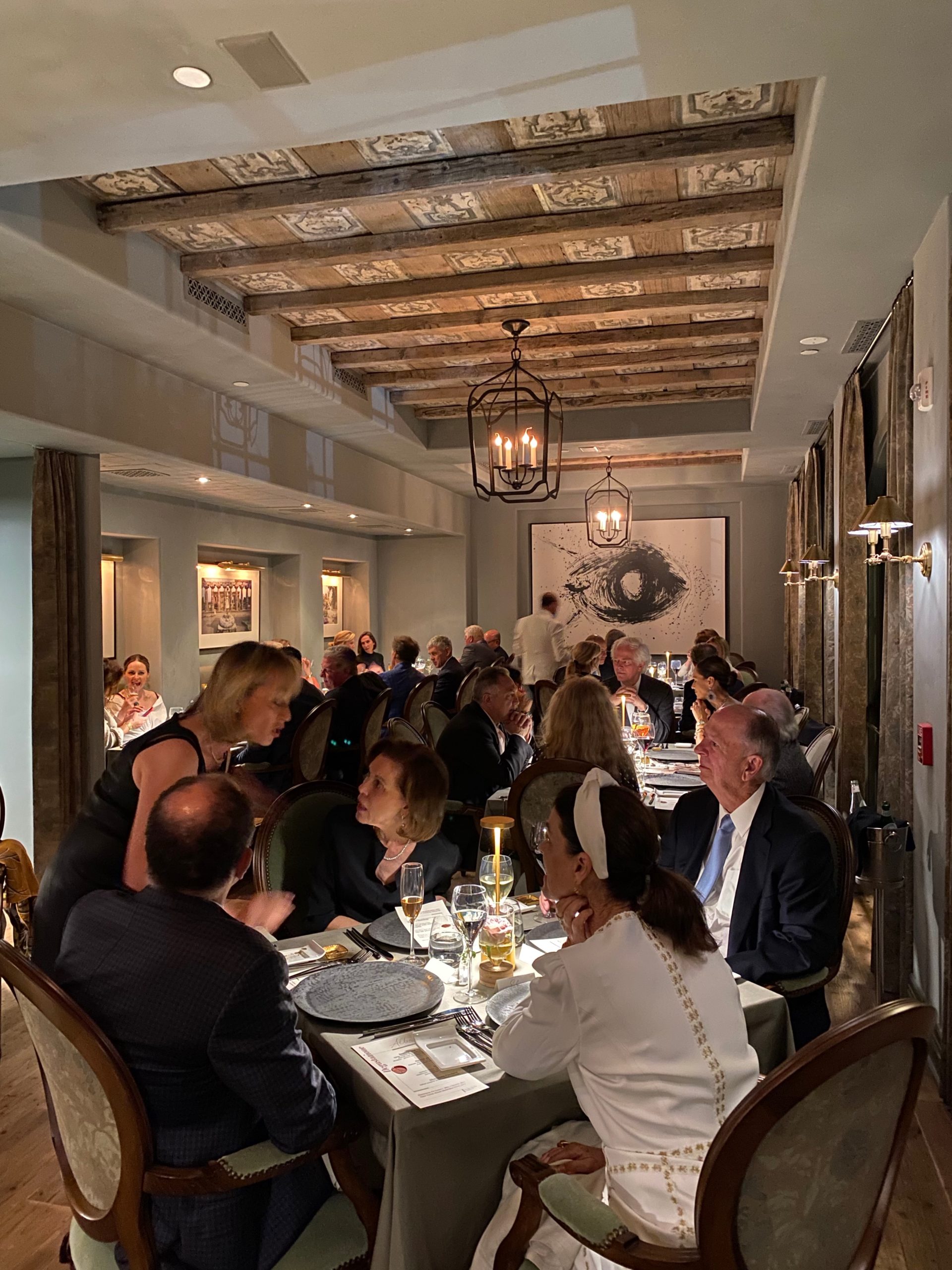
What I love so much about this list is that it’s a deeper dive into acting with emotional intelligence. It’s more challenging than which fork to use, and therefore much more fulfilling and relevant. Humans dine out for a small collective set of the same reasons. With all the world is facing, our delicious escapes can and should be a fabulous retreat.
Want more? Join me beginning in May on a new podcast weekly to explore the issues with a wide range of experts. In our upcoming (late May) Dining Out episode, Jon Stevens and Janice Provost get more personal and give more details with me and my co-host, Shed G.
Exciting News: Join the podcast LIVE at Sadelle’s on Friday, May 19, at 10 am, and bring your questions, or just come to listen.
I hope to meet you there!













_md.jpg)





_md.jpg)


_md.jpg)







_md.jpg)



















_md.jpg)



_md.jpg)




_md.jpg)




_md.jpg)









